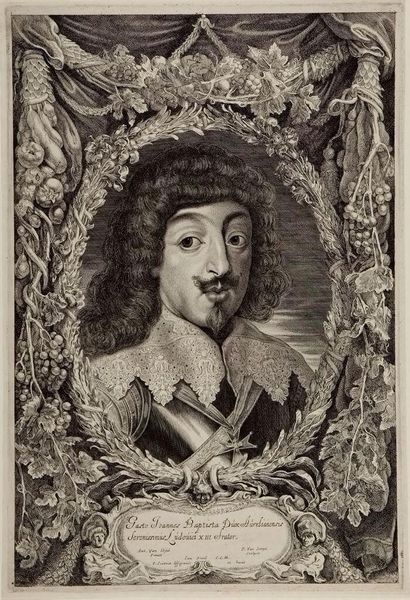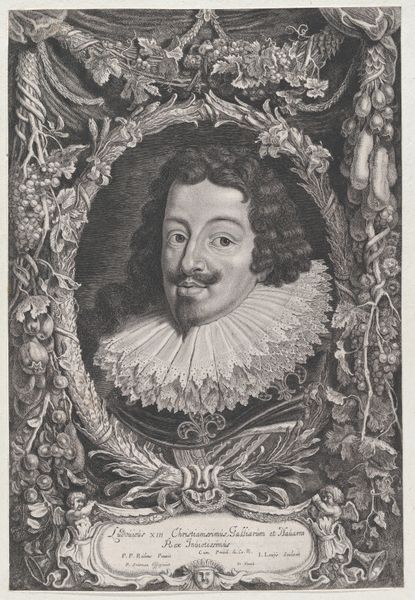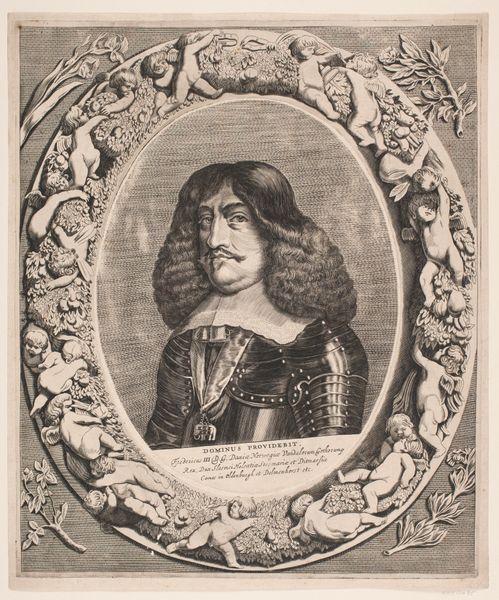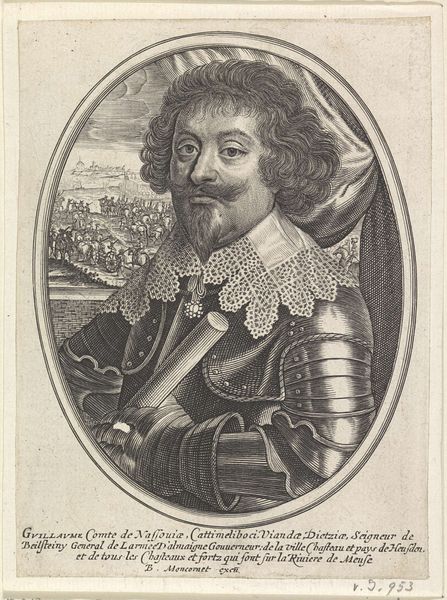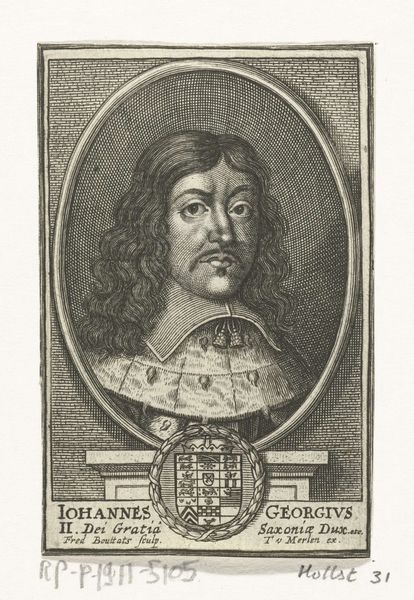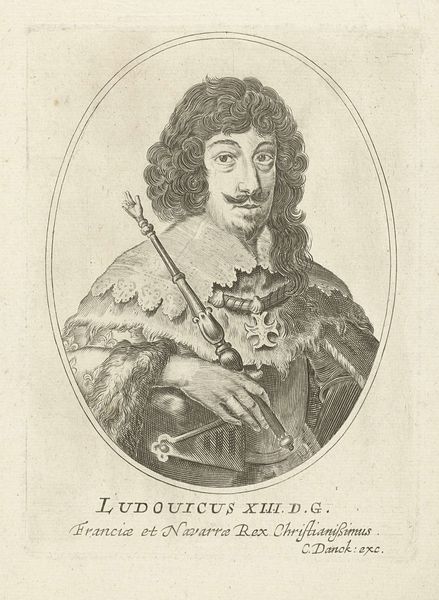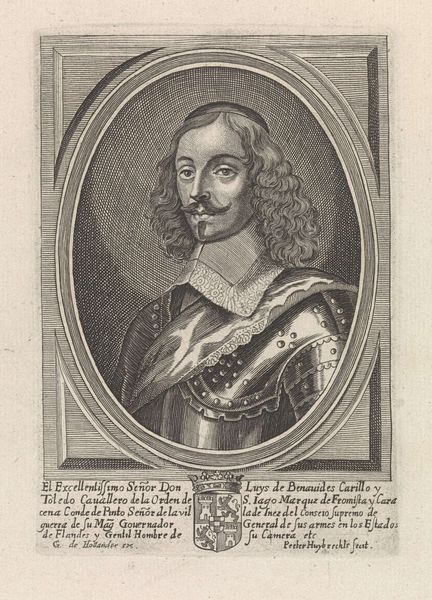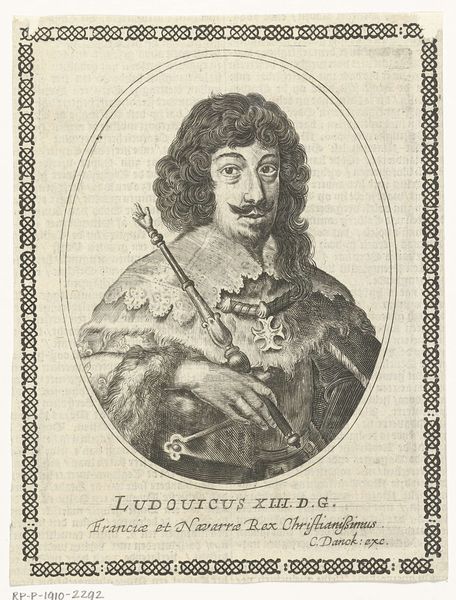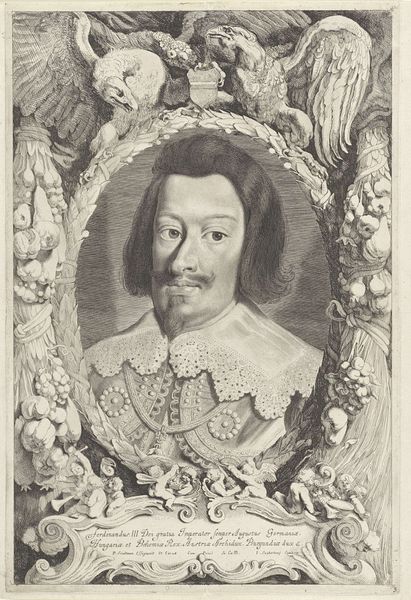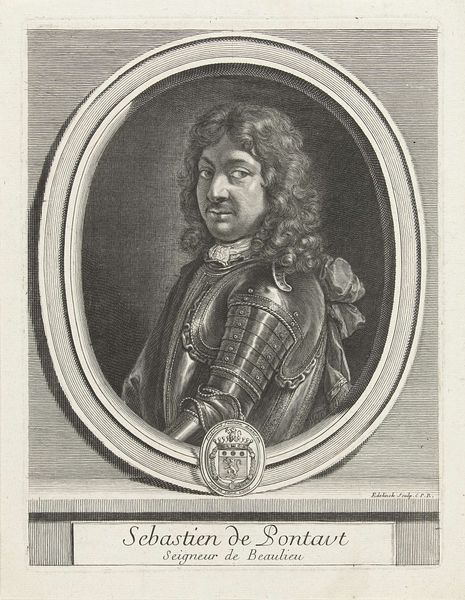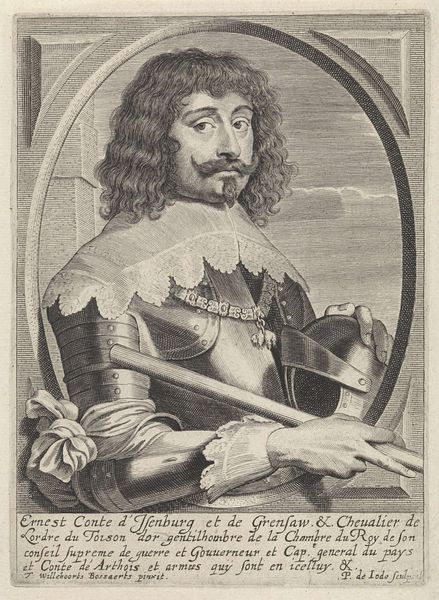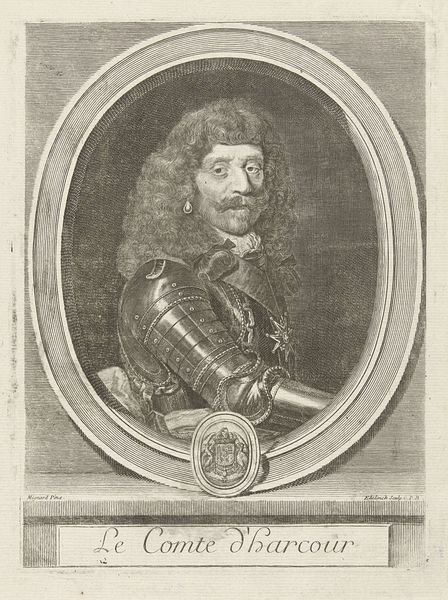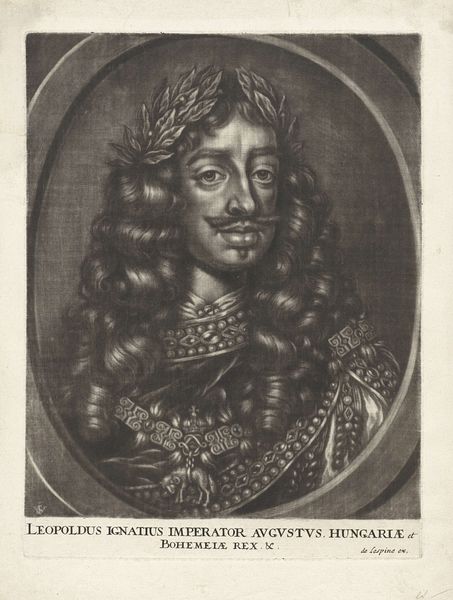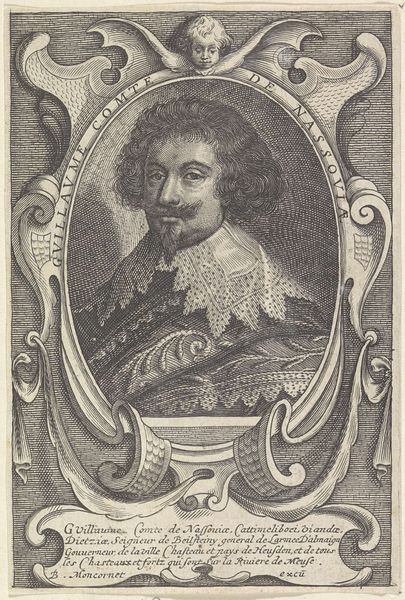
print, engraving
#
portrait
#
pencil drawn
#
baroque
# print
#
old engraving style
#
pencil drawing
#
line
#
history-painting
#
engraving
Dimensions: height 414 mm, width 278 mm
Copyright: Rijks Museum: Open Domain
Curator: Good day. We are standing before a print realized by Pieter Van Sompel, dating between 1644 and 1650. The artwork is entitled "Portret van Gaston Jean-Baptiste, hertog van Orléans". Editor: Intriguing. The portrait is dominated by intricate linework. I'm immediately drawn to the textural contrast between the smoothness of his face and the ornate details of the frame surrounding him. Curator: Indeed, Van Sompel’s masterful use of engraving brings forth Gaston’s likeness framed within symbolic ornamentation that serves as a powerful statement of his political standing and dynastic ambitions within the context of the French court. Editor: It's more than mere embellishment; notice the carefully balanced composition? The textures, framing... everything draws the eye directly to Gaston's gaze. It has a specific compositional integrity, this contrast of lines. The Baroque style amplifies this dynamism, and I find it quite engaging. Curator: Baroque engravings such as this served more than a decorative purpose. Its proliferation reveals strategies through which power and prestige were constructed through visual representation, while circulating encoded imagery accessible only to a limited segment of the literate population. Editor: Absolutely, and while that certainly speaks to its history, I find it's still engaging on a purely visual level today. The sheer density of detail compels close study. We can dissect and appreciate Van Sompel’s understanding of formal relationships independent of context, no? Curator: I concede that there are aesthetically valuable aspects within this print, yet my interpretive commitment directs my view onto socio-historical elements impacting meaning-making, shifting my gaze from inherent formal properties. Editor: Perhaps both views enhance one another, like varied interpretive lenses through which this artwork can offer an encompassing historical reading, coupled with profound compositional understanding. Curator: I would agree that this multilayered interpretive experience generates a more complete understanding of this intriguing specimen of portraiture of political significance. Editor: Precisely, an intersection of aesthetics, meaning, and context—making the engagement more substantial.
Comments
No comments
Be the first to comment and join the conversation on the ultimate creative platform.
